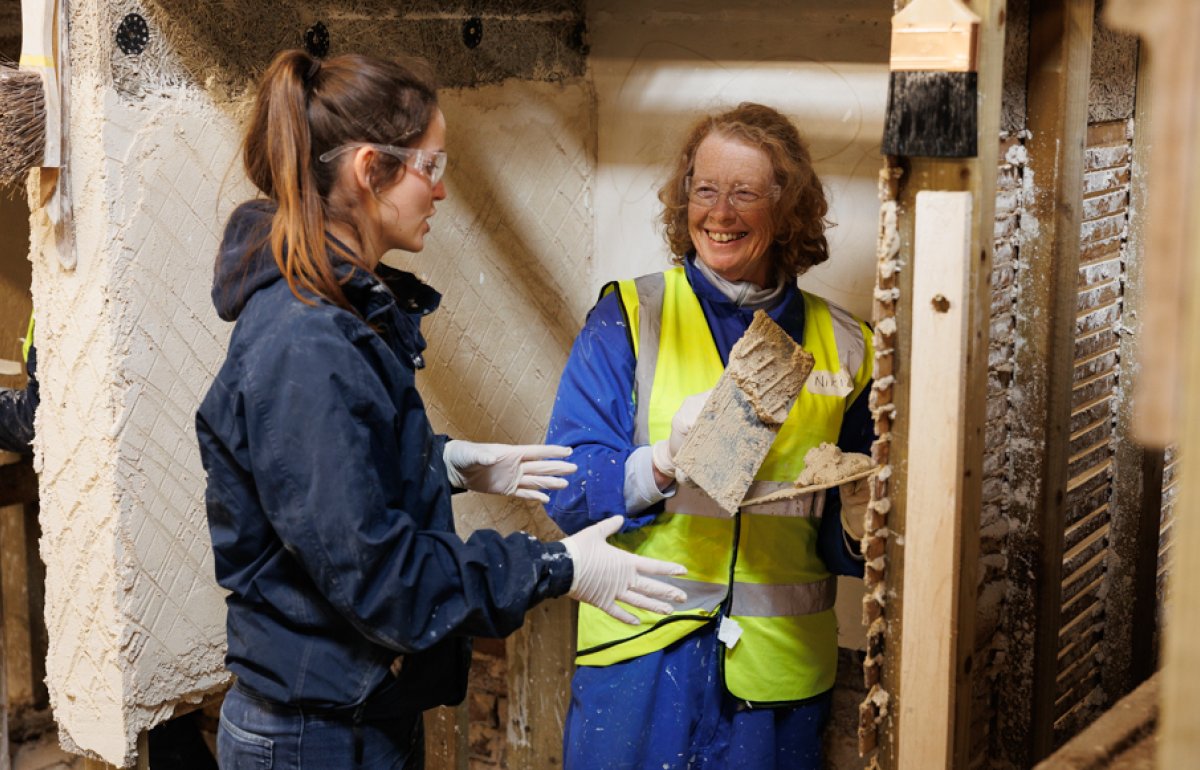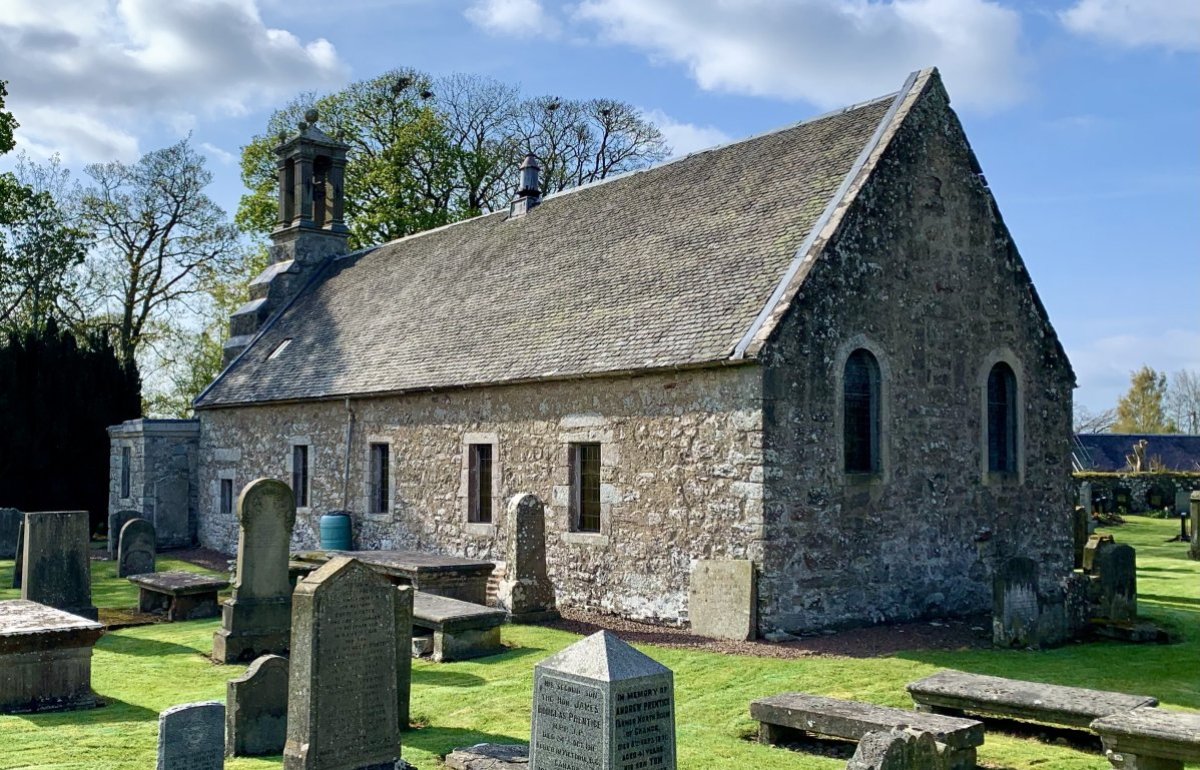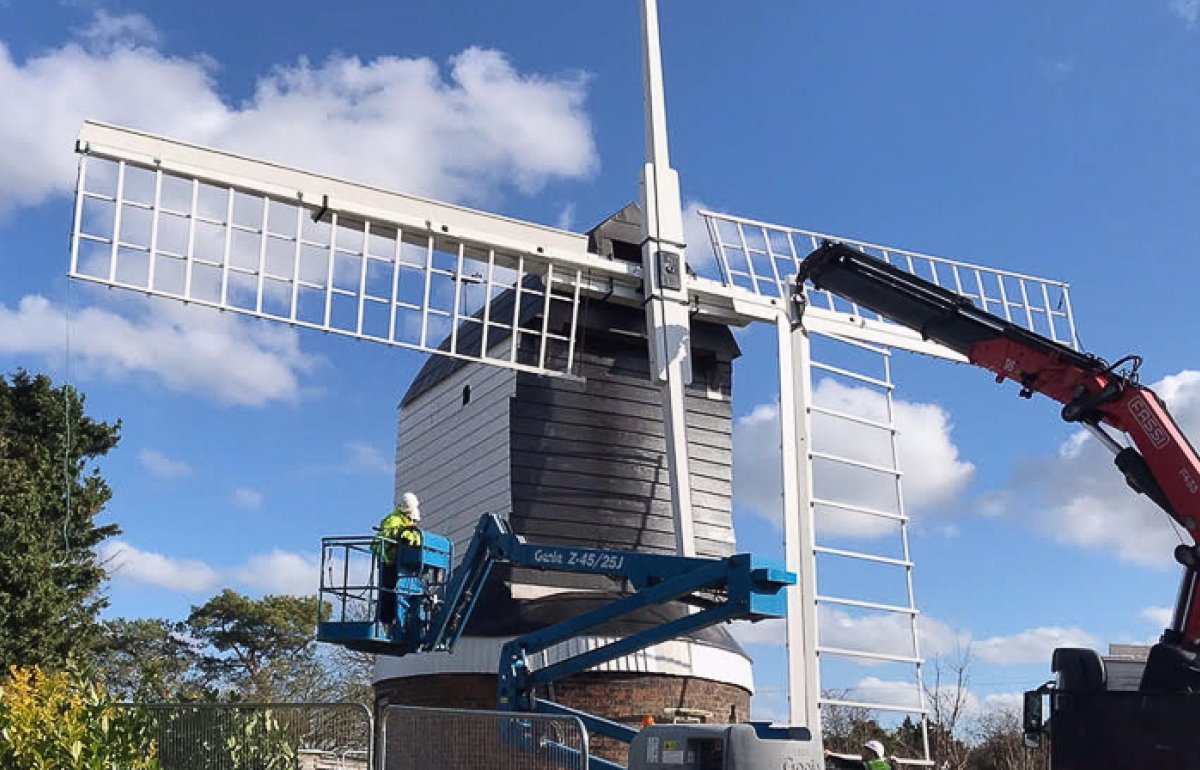SPAB Scotland AGM, Moffat - NEW DATE

SPAB Scotland AGM, Moffat - NEW DATE
**Registration CLOSES 11pm Monday 21st June 2021
NEW DATE - Saturday 26 June 2021
Free - AGM Only (Does not include Lunch or Tour)
£15 - Includes Full Day (10am prompt for Walking Tour, AGM, Lunch, Lectures)
£6 - Lectures Only (13.45 prompt)
Event details
Date: Saturday 26th June 2021
Venue: Moffat Town Hall High St, Moffat DG10 9HF (Map here)
Price:
Free - AGM Only (Does not include Tour, Lunch or afternoon lectures)
£15 - Full Day (Walking Tour, AGM, Lunch and afternoon lectures)
£6 - Afternoon Lectures Only - All Welcome!
COVID-19 - We are working on the basis that this event will be fully in-person, with the option of viewing the lectures online if preferred.
The day will consist of a walking tour led by Peter Burman & Ross Burgess, followed by our AGM (free), and a light lunch. In the afternoon, we will hear from Ross Burgess of the Falkland Society about the Historic Buildings Survey they carried out in Falkland and how such a survey could be replicated in Moffat, this will be followed by a talk from Archie McConnel (secretary) and Graham Roberts (retired Archivist Ewart Library Dumfries) of Dumfries Archival Mapping Project (DAMP), titled "Mapping Moffat from the Clay of the Commonty to Imported Lime", which will reveal some of the treasures unearthed during the recent digitisation project, including the discovery of many 18th Century hand-drawn cartography maps of the area. Having set the context, this will be followed by a talk from Professor Peter Burman, MBE FSA who will give a lecture titled "Moffat - a precious historic environment on the threshold of climate change". The talk will place the special heritage assets and qualities of Moffat in the context of the global climate crisis, demonstrating how we as building professionals and enthusiasts can play a role in tackling the climate challenge.
Programme:
9.30 - Arrival, tea & coffee in Moffat Town Hall
10.00 (prompt) - 12:00 - Walking Tour - Peter Burman & Ross Burgess. Please note that the nearby Moffat Museum will be open from 11 - 1pm for those attending the SPAB AGM.
12noon -13.00 - Lunch, Moffat Town Hall.
13.00-13.45 SPAB Scotland AGM
13:45 - Falkland Historic Building Survey - Ross Burgess
14:00 - Mapping Moffat, From the Clay of the Commonty to Imported Lime - Archie McConnel, Secretary, Dumfries Archival Mapping Project.
15:00 - Moffat - A Precious Historic Environment on the Threshold of Climate Change - Professor Peter Burman, MBE FSA
16:00 - Event close.
We hope that some of the group will join us for informal drinks afterwards at the nearby Buccleuch Arms.
Walking Tour by Peter Burman
Upon leaving the Town Hall we will view the High Street and Moffat House hotel built by John Adam, then walking up Academy Road, we will admire the two oldest houses in Moffat, Hopetoun and Archbald Moffatt House. We will then have a look at Beechgrove, Hope Johnstone Park, then Eastgate developed 1790’s. From there, we will climb to see the houses of Hartfell Crescent in the uppermost part of the town, follow the path through the wood to the villas of Haywood Road and Well Road. The group will then be led back into the town via the picturesque Well Street to the Old Churchyard and remaining medieval Parish Church gable, highlighting the location of SPAB and Moffat Heritage Trust upcoming training events 23rd to 27th June. Crossing the road, we will see St. Andrews Church, which replaced (but one) Moffat old Parish Church. Finally, we will amble up the High Street back to the town Hall, where tea, coffee and sandwiches will await us for lunch.
No special equipment is required, however we ask that you please dress appropriately and wear comfortable walking shoes. The distance covered in the walking tour will include plenty of passes to admire the buildings, it will also be at pace to get around in 1.5-2 hours.
Mapping Moffat, From the Clay of the Commonty to Imported Lime by Archie McConnel, Secretary, Dumfries Archival Mapping Project (DAMP) and Graham Roberts retired Archivist Ewart Library
Archie McConnel and Graham Roberts will be talking about the general patterns of building procurement behaviour which are pretty much the same now as they always have been in terms of price and availability. They will also be taking a look at the difference between past specification and how it is currently done. The acquisition of building materials changes as a town increases in size and as transport develops. This can be readily seen using pre-Ordnance Survey maps showing the growth of the town as well as the sources of the raw materials. All this will be directly related to the history and topography of Moffat and the surrounding area.
Moffat - A Precious Historic Environment on the Threshold of Climate Change lecture by Professor Peter Burman, MBE FSA
This talk will be a celebration of the special heritage assets and qualities of this remarkable Border town, which our speaker has known for two decades and often been there, stayed there, and photographed it. Dr Burman will place the town of Moffat in the context of the most terrible crisis that our world has experienced in historical times. Building construction is responsible for a huge percentage of our total global carbon emissions. What can we do about it? We can use traditional and local building materials, and especially we should use lime rather than Portland cement. We should plan to reduce land-take, build less, build better and build to last. We should focus on the maintenance and repair of our existing building stock. Where opportunity or necessity offers the possibility we should re-purpose it. We should seek to improve its performance and to enhance its appearance. Our innumerable historic villages and towns should focus on retaining and enhancing environments which are 'beautiful, peaceful and fruitful', to use Ruskin's words. We should plant as many trees as possible in and around our settlements, well-chosen and interesting species, and thoughtfully placed so as to complement the historic environment.
Getting Here
From Glasgow via bus: from Buchanan Bus Station (Stance 7) X74 towards Dumfries. (If you are planning on getting this bus, please inform us at scotland@spab.org.uk and we will arrange a meeting point to join the walking tour)
There are frequent trains from London, Glasgow and Edinburgh to Lockerbie and a bus service from Lockerbie to Moffat High Street.
By car:
From the south: Take the M6 heading for Carlisle then the A74(M) to Glasgow/Edinburgh. Exit at Junction 15 for Beattock/Moffat.
From Glasgow: Take the M8 heading to Edinburgh then follow the M74 and A74(M) to Dumfries and Galloway. Take exit 15 from the A74(M) and follow the signs to Moffat town centre.
From Edinburgh: Either follow A702 and A74(M) to Dumfries and Galloway, then take exit 15 from the A74(M) and follow the signs to Moffat town centre or Follow the A701 Scenic Route from Edinburgh to Moffat.
Distances/approximate time by car from Moffat:
Glasgow 55m/88km 1hr
Edinburgh 50m/80km 1.5hr
Carlisle 44m/64km 45min
Newcastle 70m/112km 2hr
Stranraer 88m/140 2hr 30m
Manchester 160m/256km 2hr 30m
London 360m/576km 5hr 30m
There is free parking throughout the high street, and a car park opposite the park as you enter Moffat from the south.
SPAB Scotland are very grateful for the support of Moffat Heritage Trust in organising this event.
Accessibility: Moffat Town Hall provides access for all and also has a changing places disabled toilet. However, if you or your guest have accessibility requirements, please contact us to discuss your specific needs.
Multiple bookings
As long as there is space on the event, we usually allow you to book for both yourself and a guest. When completing the booking form, you will be asked to select the number of people and put in your own details on the first page, then to put in your second person's details on the next page. The event fee shown on each of these pages is for the individual person - you will be shown the total amount due once you get to the summary page.
About SPAB Scotland
Members of the SPAB living and working in Scotland decided to form their own semi-autonomous group in 1995. Scotland has its own building traditions, architectural language and property laws, all of which are best dealt with locally. All members of the SPAB residing in Scotland are automatically members of SPAB Scotland.
Accessibility: please contact the Group Organiser before booking to discuss any special access requirements.



